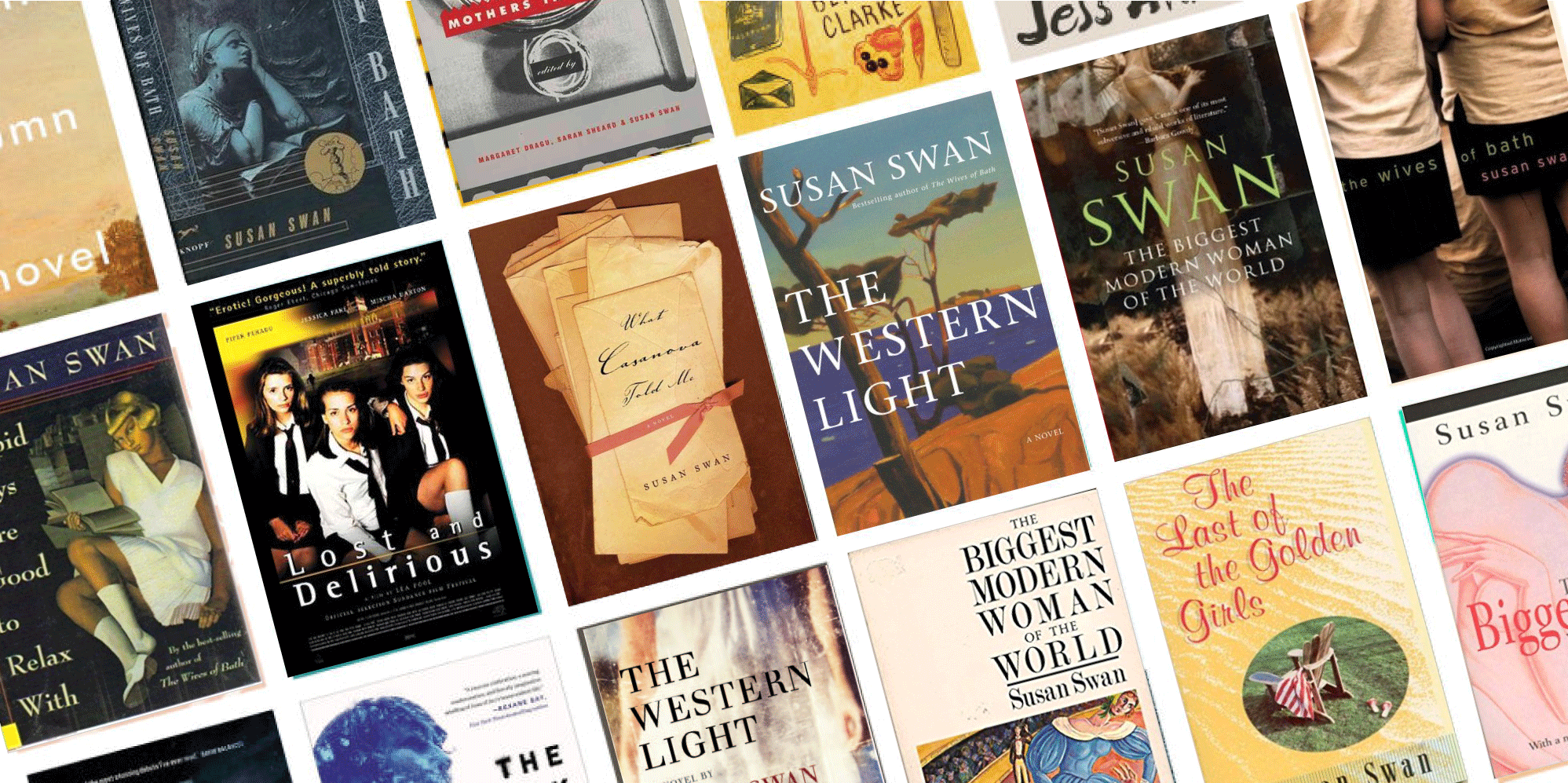Getting ready for the Giller
Canvassing Friends on What to Wear – this is not a rhetorical question
Getting ready for this year’s Giller Prize ceremony I am a bit flummoxed on what to wear.
Should I break with protocol and wear Pat McDonagh’s knock off of a World War One flying suit? The Red Baron, Manfred von Richthofen, wore a suit like this in World War One when he knocked our aircraft out of the sky. He was shot down himself in 1918, the year the war ended.
You get the picture.
But do you get this picture? A case could be made that all writers should dress in combat gear for the Giller since it’s the biggest battle of the books we have in this country.
“An American woman novelist who wrote a book about a family would never be called ‘America’s greatest living writer'” … my recap on Saturday’s IFOA event.

On Saturday, I moderated an International Festival of Authors round table on the family dynamic with three US and Canadian novelists. There were four authors at the round table, including myself: US writer Jennifer Haigh, whose novel Faith describes what happens to the Irish Catholic MGanns when the priest in their family is accused of molesting a child; Canadian Alexi Zentner who wrote Touch, a magic surrealist novel about three generations of a Catholic family in a BC boom to bust frontier town (Touch was recently nominated for a Canadian Governor General’s Award); and Canadian poet and novelist Sina Queryas, who wrote the less traditional but equally compelling, Autobiography of a Childhood. I liked the question asked by a child psychiatrist in the audience. He wanted to know why there seemed to be a new trend of writing about individuals in families instead of novels dealing with individuals and their actualization.
I suggested that Canadians already saw themselves as individuals in a context or group, and maybe there was more of that going around because the world was getting smaller.
Jennifer Haigh said she thought it was because more women were writing novels now and women have traditionally been busy with family. Sina Queryas, who is also a poet, thought it didn’t have so much to do with family but said that there was just more interest in the polyvocal novel–a novel with many voices, which was the case with her novel about a family who is losing a daughter to cancer. Then Alexi Zentner said he agreed with the female writer who complained recently that an American woman novelist who wrote a book about a family would never be called “America’s greatest living writer” (the term applied to Jonathon Franzen). Alexi said it was time it give women writers equal credit for writing about family instead of dismissing their work as domestic novels.
He drew grateful thanks from his female panelists on that one.
Zentner also pointed out that books no longer need wars in them to be considered masterpieces and he was glad that the times have changed. Here are more paraphrased quotes of the day:
When I cross the border, I feel as if a hundred people have stepped off my shoulders. Sina Queryas
Writing around the silence that covers up a family secret is sometimes a necessary digression that distracts you and helps you digest the experience. Sina Queryas.
The duties and obligations of men and women in families aren’t less or more in the case of the genders but just take a different shape. Jennifer Haigh
Death is a good way to examine how we love someone. Alexi Zentner
The family is a bear trap. You can choose to cut off your arm or enjoy the pain. Alexi Zentner
The panelists were all smart and good writers. I found myself lost in the three enthralling but very different worlds of their novels. You can’t beat that for a recommendation, can you?
More thoughts and articles on refugee journalists…
I can’t seem to shake the chills thinking about the horrific experience of refugee Eritrean journalist Aaron Berhane. There are so many more like him still in jail, held unjustly by their governments.
As I mentioned in my blog on Aaron, I wrote a letter to Dawit Habtemichael, another Eritrean journalist being held by the Eritrean government unlawfully. I am working with PEN, essentially ‘adopting’ Dawit and helping to fight for his release. The links below will take you to PEN Canada’s website where there is video footage of each letter, written by the five authors although Marion Botsford Fraser read my letter that day because guess what––I had the flu. These letters were read at a September 23 event called, “The Other Side of Silence – Speaking out for Eritrea’s Imprisoned Journalists.”
International Festival of Authors – Roundtable: The Family Dynamic
As part of the IFOA, I am delighted to be hosting a panel discussion with Canadian & US novelists writing about family myths and secrets: Alexi Zentner, Jennifer Haigh and Sina Queyras.
All this information can also be found on my Facebook page(s).
The Journalist’s Tale: Running for Your Life Across a Dessert Border
The Journalist’s Tale: Running for Your Life Across a Dessert Border
This month, I met Aaron Berhane in a Bloor street Starbucks and he told me how he had escaped his country’s secret police and lived to tell the tale. I still had the flu and I became progressively more feverish as he described starting out as a journalist in Eritrea, the small African country next to Ethiopia. I could feel myself sinking deeper and deeper into my hard-backed chair as if I was being driven into the ground by the moral force of his story. I couldn’t help putting myself in his position and wondering if I would show the same courage. Even as a little girl, I used to suspect myself of being a coward. Would I be brave enough to fire machine guns like Canadian soldiers in France? Or would I just run away? Some of my fears were triggered by the GI comics of the 1950’s. And the other part comes from within me: a nagging curiosity about the depths of my own courage or cowardice.
Here’s Aaron’s tale: Aaron was one of the first graduates of the journalism and mass communications program in the University of Asmara, the capital of Eritrea. (This program has since been closed by the Eritrean government. It’s also worth noting that there are no privately owned media outlets in Eritrea.) After Eritrea got its independence in 1991, Aaron was critical of the way his government was running the country, but he couldn’t get his letters and articles published by the government owned newspaper, the only publication in the country. So he co-founded the first independent newspaper himself– over the objections of his father. He didn’t want Eritrea to become intolerant and repressive which is what he believes has happened to a number of African countries after their independence.
A Writer’s Life: the Dark Side First
This spring I attended an event comprised mainly of writers much younger than me whose short stories were being published by Joyland: a digital hub for short fiction. Three young writers were interviewed by three other young writers and they answered questions instead of reading from their work although one writer Natalee Caple read a limerick. Her name is Natalee Caple and she is a friend of mine. Her poem was about the federal Conservative government winning a majority in the recent election.
Culture is broad, Natalee said, and a community of writers is important, and she wrote her short stories as a way to express her own joy and interest in magic and allegory even though her agent had told her not to do this because she has a novel coming out soon and a digital collection of stories might interfere and possibly dampen her readers’ interest in the novel.
What Only the Peacock Knows
Do Teachers learn from Their Students?
Last week end, one of my former students, Canadian playwright, Paul Ciufo, interviewed me at a book event in Bayfield, Ontario. We kicked off the evening with Santa Claus and the lighting of the Christmas lights in the town square, and then Paul and I went back to the Village Book Shop, which is run by its new owner Mary Brown. One of the first questions Paul asked was about a remark I’d made in a creative writing workshop at York University.
“You need to tell me something that only the peacock knows,” Paul said, quoting my feedback on his short story about a peacock.
He said my remark had haunted him as a playwright and what on earth did I mean? At first, I hemmed and hawed. Had I given Paul bad advice? Shouldn’t I have given him more information instead of making mysterious pronouncements about peacocks?
Flummoxed, I took a stab at what I had meant twenty years ago when he had been a promising and talented student in my class. “We need narrators who are like us and not like us so we have room to invent,” I replied. Paul looked at me blankly. I went on. “And students tend to offer a long and often cliched laundry list of descriptive details about a character instead of finding the specific, defining details that let us see who their character is. So I wanted you to tell me specific things about the peacock. Instead of using vague, general language to describe your peacock.”
Paul still looked puzzled, and I knew this wasn’t what I had meant at all. So what had I been going on about?
Reflecting on our conversation this morning, it strikes me that I was telling Paul what writers do. Our job is not only describing what our character knows but what is special about what our character knows. And in each case, it is up to the writer to find out that special knowledge and convey it. The writer can express this in a variety of ways, through an image or a metaphor, or an inner dialogue of some kind.
And that reminds me of something that Thornton Wilder once said, that an artist’s job is to reveal the truth and hide it at the same time. And what did Wilder mean by that? Only the peacock knows.
Mouse is back in Susan Swan’s prequel to ‘The Wives of Bath’: a Globe and Mail review
By CANDACE FERTILE
Published Friday, Nov. 02 2012, 4:00 PM EDT in The Globe and Mail. The following is an excerpt.
Full article available here :www.theglobeandmail.com/arts/books
Mouse Bradford, the central character in Susan Swan’s The Western Light, first appeared in The Wives of Bath (1993), and I fear my enjoyment of this new novel was hampered by knowing what happens after the events in it.
Here, 12-year-old Mouse is trying desperately to connect with her widowed father, Morley, a dedicated doctor who has given over raising Mouse to his housekeeper, Sal, since his wife’s death eight years earlier. But Mouse’s grandmother, Big Louie, decides that Sal is ineffective, so she dispatches her daughter, Little Louie, to help raise Mouse.

Swan captures the 1950s time frame as well as the setting of Madoc’s Landing, a tourist town on Georgian Bay. Mouse is the narrator, and while it’s clear she has grown up, most of the story is told from her perspective as a girl, not an adult. She is a delightful character – intelligent, thoughtful and curious. She wants attention from her father, but he spends nearly every minute on his patients. And when he’s not practising medicine, Morley coaches the local hockey team. He loves his daughter, but cannot carve out any time for her. It’s no surprise when Mouse befriends an older man, a father figure.
But her choice is unexpected. The town has a psychiatric hospital, where John Pilkie has been incarcerated for killing his wife and baby daughter. Swan’s clever twist is that Pilkie was a star National Hockey League player, and some people, including Morley, believe Pilkie’s violence stems from hockey concussions. Pilkie is a charming man and a snappy dresser. And he treats Mouse with kindness and respect. It’s no wonder she responds so favourably.
The tensions the novel builds on are the parent-child relationship, messy love affairs, the limited (or perhaps non-existent) rights of people deemed insane and locked up in mental institutions for crimes, and the national love of hockey and the damage the players are helpless to avoid. And Mouse is going through a touchy time. She’s on the cusp of physical maturation, and she’s resisting it. She has one leg damaged by polio and worries about how people perceive her.
The novel delves deeply into Mouse’s relationships. Swan develops Mouse’s strength while never losing sight of her youth and that she cannot solve her problems by herself. Neither can the other characters, including Pilkie, who is frantic to get his case reviewed. Clearly, Mouse and Pilkie are parallel in significant ways: Both are damaged, and both need the attention of someone with more power than they have.
Full article available here :www.theglobeandmail.com/arts/books
Why Casanova?
For the Sarnia Book Club Marms:
I have posted this blog this week for the Sarnia Book Club Marms who are celebrating What Casanova Told Me at their November 25 book club event. Click the multi media section on the home page of my blog for the song What Casanova Told Me by Alberta folksinger Corrie Brewster. The song was inspired by the novel. Judith Keenan’s first Bookshort evokes the novel and it, too, is under the multimedia link on the home page. Here’s the reason I became interested in Casanova:
My interest in Casanova grew out of an unresolved argument with a family member. My uncle-in-law, the late Jack Crean, argued that only non-fiction captured the truth of human experience. I, of course, argued for fiction. One evening, Jack brought out a new example: the 12-volume memoir by Giacomo Casanova, History of My Life, and challenged me to top it. He said the passage describing Casanova’s escape from the Leads, the Venetian prison next to the Bridge of Sighs, was the best suspense narrative in Western literature.
Somewhat disdainfully, I took away the memoir and began to read it. All I knew of Casanova was the man who been passed down in public myth. An infamous womanizer, in other words, one of those playboys your mother told you to avoid. I’d also seen Fellini’s movie, Casanova, which cemented the womanizer myth. This film is a masterpiece but it doesn’t show the literary side of Casanova. The European man of letters who had translated The Iliad, written poems and operas and essays and engaged in scientific discussions.





